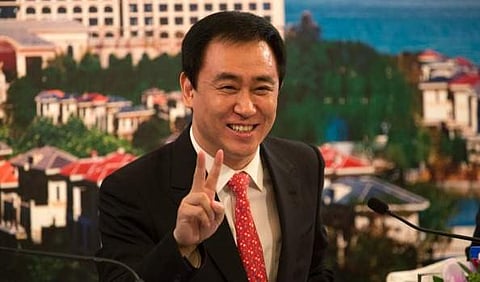

Hui Ka Yan, who chairs Hong Kong-listed property developer Evergrande Group, has seen his fortune leap by USD 8 billion to USD 33.5 billion in just two days as shares of his firm rocketed up more than 34 per cent, said a Forbes report. He is now the third richest person in China, as quoted by Forbes Real-Time Ranking of billionaires.
According to the Forbes report, Evergrande Group is a real estate company with nearly 600 projects across more than 200 cities in China. Its stock had risen an astounding 393 per cent since the beginning of 2017, giving Chinese billionaire, Hui, a year to date profit of USD 24.5 billion.
Evergrande stock’s sudden incredible surge is extraordinary. The Forbes report said, together with his wife, Hui owns roughly three quarters of the 21-year-old company, giving it a small public float. On top of that, the firm has been busy buying back its own shares, splashing out roughly USD 1.4 billion in 2015 and 2016 to acquire more than 10 per cent of its stock.
The surge came after the company announced its expectation that its unaudited net profit for the first half of 2017 will be triple that of the previous year, the Forbes report said.
It further added, Evergrande had cited both a higher average selling price and increased square footage sold as the main reasons for the growth in profits, while in addition, the group has been paying down debt, which it says will increase the profit to be given to its shareholders.
The Forbes report also pointed out that Evergrande, headquartered in Guangzhou, China, has invested heavily in lesser known Chinese cities like Liaoyang and Tongling. It added that while a multi-year real estate boom has resulted in purchasing restrictions in major metropolitan cities like Beijing and Shanghai, smaller cities have so far escaped such restrictions.